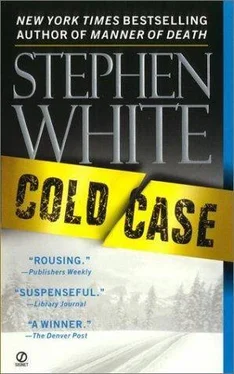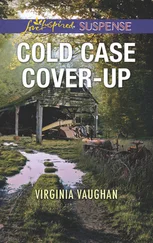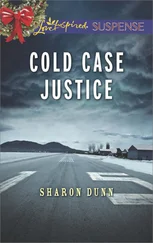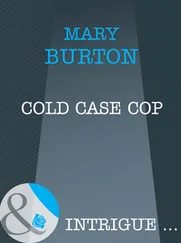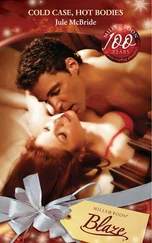The Hamamotos, in contrast, never appeared on any of Channel 9's broadcasts.
One of the television reports had been taped at the high school. It piqued my interest. As I watched I wrote down the principal's name, those of two teachers who knew both girls, and the names of three classmates who identified themselves as good friends.
It was a start.
I glanced at my watch and noted that the first of my appointments with my rescheduled patients began in twenty minutes in my downtown office. Emily needed fresh water. I filled her bowl and hustled out the door.
Our home is at the end of a dirt and gravel lane that Lauren and I share with only two other residents-our neighbor across the way, Adrienne, and her son, Jonas. By default, any traffic on the lane is either heading to one of our homes-or more likely the case-the driver is lost. Vehicles almost never park on our lane. Not only is there no reason, but there is also no room. The lane is barely wide enough for two small cars, and the shoulders are as soft as cotton candy.
So I was perplexed by the white Nissan Pathfinder that I saw parked on the west shoulder of the lane when I climbed into my car to go to my office after lunch.
I was sure the car hadn't been there when I'd ridden my bike home an hour or so earlier. I slowed my own car to a crawl as I edged past it.
I didn't see a driver at first, so I stopped just opposite the car. A man suddenly sat up on the front seat. He appeared to be as startled as I was.
I waved hello and lowered my window. So did he.
"Hi," he said through a mouthful of food. He was listening to a country station on his radio.
I wasn't.
"Hello," I said.
"Can I help you?"
He swallowed and smiled.
"No. No. Don't think so."
The man was young, mid-twenties at the most. Wide shoulders, crew cut, small silver earring in his left ear. He held a drink cup from Wendy's in his right hand and a single French fry in the other. The French fry was long, laden with ketchup, and was drooping in the middle.
Farther down the lane Jonas was home alone with his nanny. I wasn't comfortable having this stranger parked down the road from their house when I wasn't around.
I said, "This is private property." "Really?" he said.
"I didn't know that. I'll just go, I guess." Although he wouldn't look me in the eye, he could hardly have been more polite.
I wrote the license-plate number of his SUV in the dust on my dashboard as I pulled away. I waited down near South Boulder Road until I saw his car leave the neighborhood.
I was late for my one-thirty patient.
I saw two patients in succession, after which I had a half-hour break-which barely gave me time to walk over to the Downtown Boulder Mall to pick up a part I'd ordered for my bike and grab something to eat to hold me over until dinner.
I rushed out the back door of my office and down the driveway to the street. In my rush I almost missed noticing the white Nissan Pathfinder that was parked at the curb in front of the building. When I saw it I stopped in my tracks and looked over my shoulder. My heart rate jumped as I walked up to the car. No driver was sitting inside. I looked for a Wendy's bag on the seat. The car was tidy.
I walked to the front bumper and checked the license plate. It matched the one I'd scribbled in my dashboard dust earlier that afternoon.
I immediately accepted the obvious: that the presence of this vehicle first near my home and next in front of my office was not a coincidence. The echo of yesterday's gunplay hadn't quieted in my head, so I spun on my heels to go back inside to call Sam Purdy and ask him to check out the license-plate number for me. That's when I saw the young man who had been sitting in the car on the lane earlier in the day. He was perched on the rickety porch swing on the rickety front porch of the little Victorian house that contained my psychology office.
He was reading the Boulder Planet.
I hustled up the concrete walk. He didn't notice my approach. He was engrossed in the newspaper, humming something. Something country.
I stood on one of the steps and said, "Hello again. I think you may be looking for me."
"What? Oh. Darn. It's you again. Hello." He made a mess of folding the newspaper and stood up. He towered over me by at least ten or eleven inches.
Subtracting for the stair tread I was on, that made him six six or so.
Involuntarily I took a sideways step away from him. I said, "Yes. It's me."
"I didn't see you coming. I saw your car in back and expected you would come out this other door, here." He pointed at the front door of the building, then proceeded to wipe his palms on the thighs of his khakis. Before he spoke, he swallowed.
"Hello, then. I'm, I'm Kevin." He held out his hand for me to shake.
I stepped up to the porch and we shook hands. His was huge and soft. He offered almost no resistance during the greeting, as though he was afraid to hurt me with his grip. Shaking his hand was like sticking my hand into a warm loaf of Wonder bread. My tone more tempered, I said, "I'm Alan Gregory. But I think you already know that."
"Well, I do now, I guess. If I had known who you were before I would have said hello up on the road earlier. Where you live, you know? You kind of caught me by surprise up there. Embarrassing. I'm Kevin, by the way, Kevin Sample." He smiled in a manner I found quite affecting.
"I hear you've been asking around about some stuff that has to do with my dad."
Picking up my new crank at the bike shop would have to wait until tomorrow or the next day. I said, "Yes, Kevin. As a matter of fact, I have," and I invited Brian Sample's son into my office.
Kevin Sample was a veterinary student up the road in Port Collins at Colorado State University. I didn't ask but I assumed that he was planning to specialize in treating large animals.
Most of the strangers I'd met recently had been either new therapy patients-with all their inherent defenses-or people associated with the lives and deaths of Tami and Miko-with all their invisible agendas. Kevin presented himself so differently from either category that I was briefly taken aback by his manner.
The young man appeared to lack guile. Absolutely.
"You stayed at a B and B in Steamboat recently. The owner, Libby, is an old friend of our family. She phoned my mom and said you were asking questions about Gloria Welle's death. My mom told me about the call. I've been waiting a long time for someone to care enough to ask some questions about what my father did that day. I thought I'd come down and talk to you about him. Who knows, might help us both."
I was trying to decide whether or not to admit to Kevin that my queries during my recent visit to Steamboat were actually directed not at learning more about his father, but rather at learning more about Raymond Welle. I postponed the decision and asked, "Help you how, Kevin?"
"Dennis was my twin brother. Did you know that?"
His reply felt like a non sequitur. I said, "No, I didn't know that."
"Fraternal twins, not identical. But we were tight." I watched Kevin smile again, then watched the smile vanish.
"In less than a year I lost the two most important people in my life. I lost my brother first and then I lost my father.
And because of what Dad did on his last day on earth, I lost all sense of my family. I lost all my friends. Eventually I lost my school. Mom and I left Steamboat a few years after what happened up at the Silky Road. We had to, I guess. It's been just me and Mom since then. To be honest, she never got over Dennis's dying. And she certainly never got over what happened at the Silky Road."
I was still waiting to hear how talking with me about his father was going to help Kevin Sample. The tone of his words had caused me to begin to wonder whether he was perceiving me as a potential therapist.
Читать дальше
